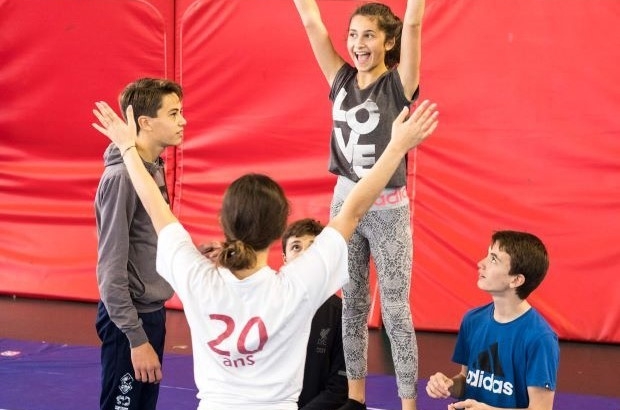- Daily & Weekly newsletters
- Buy & download The Bulletin
- Comment on our articles
École Jeannine Manuel - Lille: Promoting international understanding through bilingual English-French education
In a leafy green suburb north of Lille in France, École Jeannine Manuel is a thriving private co-ed school for three to 18-year-olds. Director Constance Devaux and head of admissions, outreach and development, Emily Blayney, explain how École Jeannine Manuel pursues an academically-strong bilingual education aimed at preparing students to be citizens of the world.
With boarding facilities and a geographical location within easy reach of Belgium, Ecole Jeanine Manuelis increasingly attracting students to its campus in Marcq-en-Baroeul. The school is in celebration mode. As well as officially opening a new eco-friendly wing, it’s marking its 30th anniversary and the 20th anniversary of the death of its remarkable founder.
With three campuses in Paris, Lille and London, the school boasts an illustrious history. Franco-American Jeannine Manuel joined the French resistance during World War II, serving as a member of the Free French in London. In 1953, she opened a first school for 12 students in Paris, strongly convinced that education was the key to a better world.
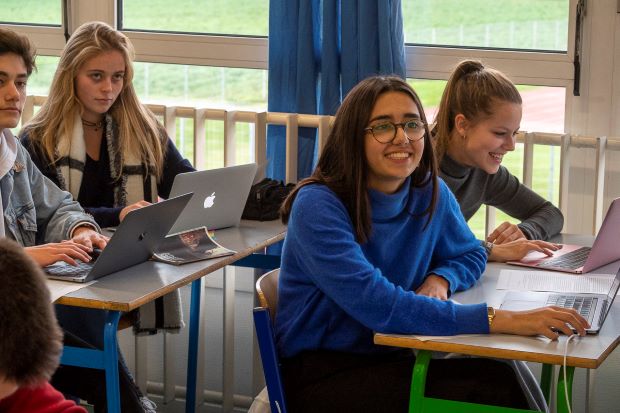
For almost 70 years, it taught in English and French with a multinational vocation: “To promote international understanding through the bilingual education of a multicultural community of students. It believes in pedagogical innovation and the constant exploration of best practices, in the context of an ever-changing global environment.”
This philosophy remains at the heart of the school’s mission statement, explains Constance Devaux. “It amazes me the vision she had in teaching active pedagogy and placing students at the centre of their learning. We don’t want them to just listen to the teacher speaking but to take centre stage. They are really in charge of their own journey.”
The international element of the Lille school is assisted by its boarding facility, which has 120 places for grade 6 to 12 students. Around 70 nationalities are currently represented at the school. The cosmopolitan nature of the campus extends to its staff with some 100 teachers originating from all over the world.
Located strategically in the dynamic Eurometropôle Lille – Kortrijk – Tournai region, the school has gained popularity, especially post-Brexit and post-Covid, as more families settle in the region. École Jeannine Manuel’s current intake is around 60% French, 20% dual national and 20% foreign students. Among the French contingent, the majority have spent time abroad.
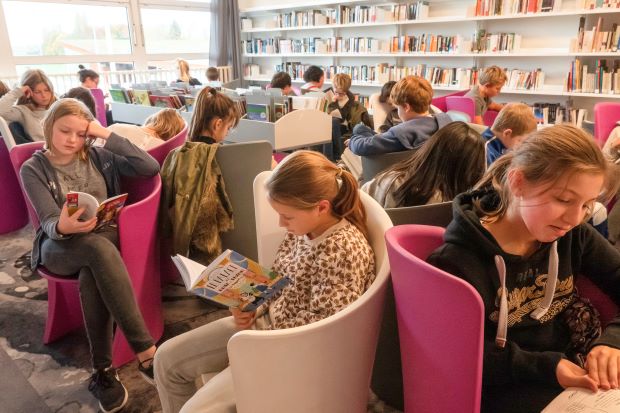
For Emily Blayney, the school is unique: “We are a French school with an international understanding that combines the best of the French and Anglophone education systems.”
Students complete their secondary education by preparing for either the Baccalauréat Français International (BFI), a bilingual and bicultural curriculum, or the International Baccalaureate Diploma Programme (IBDP), taught in English. Thirty years of experience with both the BFI and the IB confirms that both are equally highly valued by the most prestigious universities worldwide, enabling students to live, study, work and adapt anywhere in the world.
The schools in Paris and Lille are consistently ranked among the best high schools in France. École Jeannine Manuel sends the highest number of students to Ivy League universities in the US or the Russell Group in the UK, compared to other schools in France.
In addition to IGCSE, the BAC Français International (with an American option) and the IB, they can study Spanish, German and Chinese with native-speaker teachers.
For three to 12 year-olds who do not speak one of the tuition languages, extra classes are provided in French and English. Secondary pupils do require a reasonable level of English, although the IB track is an option for those without French.
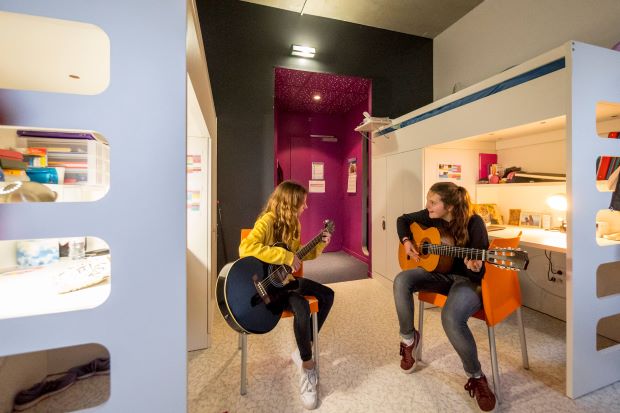
Care is taken in the admission process to ensure children can cope with the linguistic demands. This involves creating a partnership between the child, the parents and the school, explains Blayney. “We want our children to be happy. As educators, it's important that the well-being of the child comes before anything.”
She adds: “This school allows children to be different and embraces these differences because we don’t all learn in the same way. We’re basically preparing them to be citizens of the world.”
The school welcomes students who do not speak one of its tuition languages. From ages three to 12, its adaptation programme provides pupils with extra classes in French and English, and helps them in understanding and adjusting to French culture. Secondary pupils do require a reasonable level of English, while for those without French, the IB track is available.
Assisting students with their university applications is a college counsellor. Around 50% choose to enter higher education institutions in France, while the remainder study abroad. Post-Brexit, the Netherlands is a popular option. Otherwise, they are largely head to the UK, Spain and the US. “Our school opens doors to everywhere,” insists Blayney.
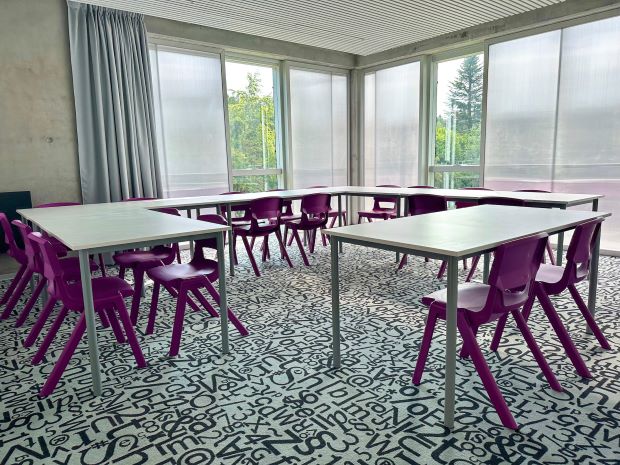
A key focus is on collaborative work, reflected in the school’s motto ‘Think, Dare, Share & Care’. “Students can help the little ones or assist at a medical centre for disabled students next door or run charity fundraising projects,” according to the director.
Trained students become ‘care ambassadors’ and interventions such as anti-bullying days feature among initiatives. An external advisor is also involved in their wellbeing.
The school encourages students to share projects from outside, fostering a strong sense of community and pride. “Our school emphasises values of solidarity, sharing, and respect for others," explained Devaux, highlighting a tutoring project by senior students that helps young individuals struggling with academic disengagement.
Following in the footsteps of its founder, the school’s pedagogy is based on coherence and innovation. “We seek out the best practices in the world, involving students administrative staff and teachers,” says Devaux.
“That’s why we visit other schools, attend workshops. What we say about the students also applies to us. All the directors are also teachers; we still teach because we want to make sure that we know what it’s like to still be in the classroom,” she adds.
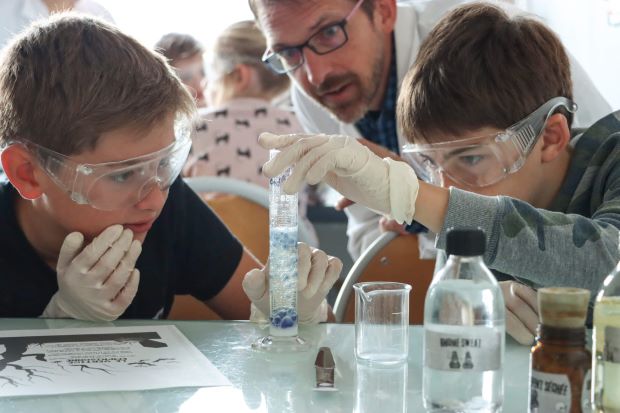
The school has developed its own research-based science programme incorporating biology, chemistry, physics and tech. Students achieve excellent grades in science and benefit from a good grounding when continuing the discipline at university.
Outside the classroom, cultural options include school radio, theatre and art, while the range of sports is enhanced by the 1600m2 gymnasium with its own climbing wall and 300m racing track. The latter is part of the new facilities that include a specially designed block (pictured below) for high school students that affords them more autonomy in their final two years.
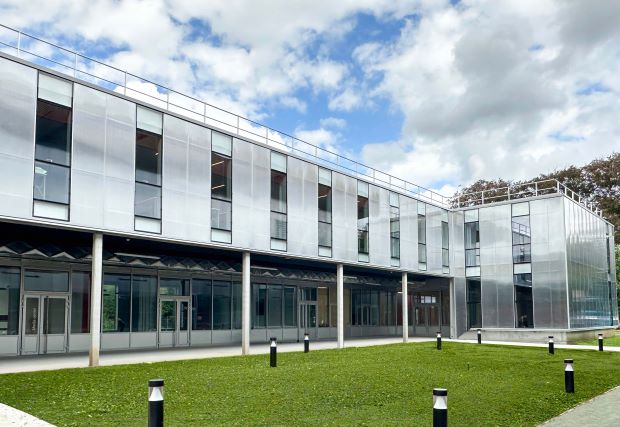
The extensive activity programme is particularly necessary for boarders, who also benefit from weekend trips away with a dedicated team. “We have a fantastic head from New Zealand and our boarding house is very much a home away from home concept,” explains Blayney.
Boarding supervisors compassionately guide the boarders in their daily lives, ensuring their well-being, lending a listening ear and in particular, oversee student preparation in the mornings and study periods in the evenings. The enrichment programme is an opportunity for boarders to switch off and do something different, whether it be yoga, pilates, rugby or indoor climbing.
“We aim to cultivate students who are happy, well-rounded and comfortable in an ever-evolving world. Our objective is to witness their confident evolution through the values of sharing, solidarity and international understanding,” concludes Devaux.
École Jeannine Manuel
Rue Albert Bailly 418bis
Marcq-en-Baroeul
Lille, France










